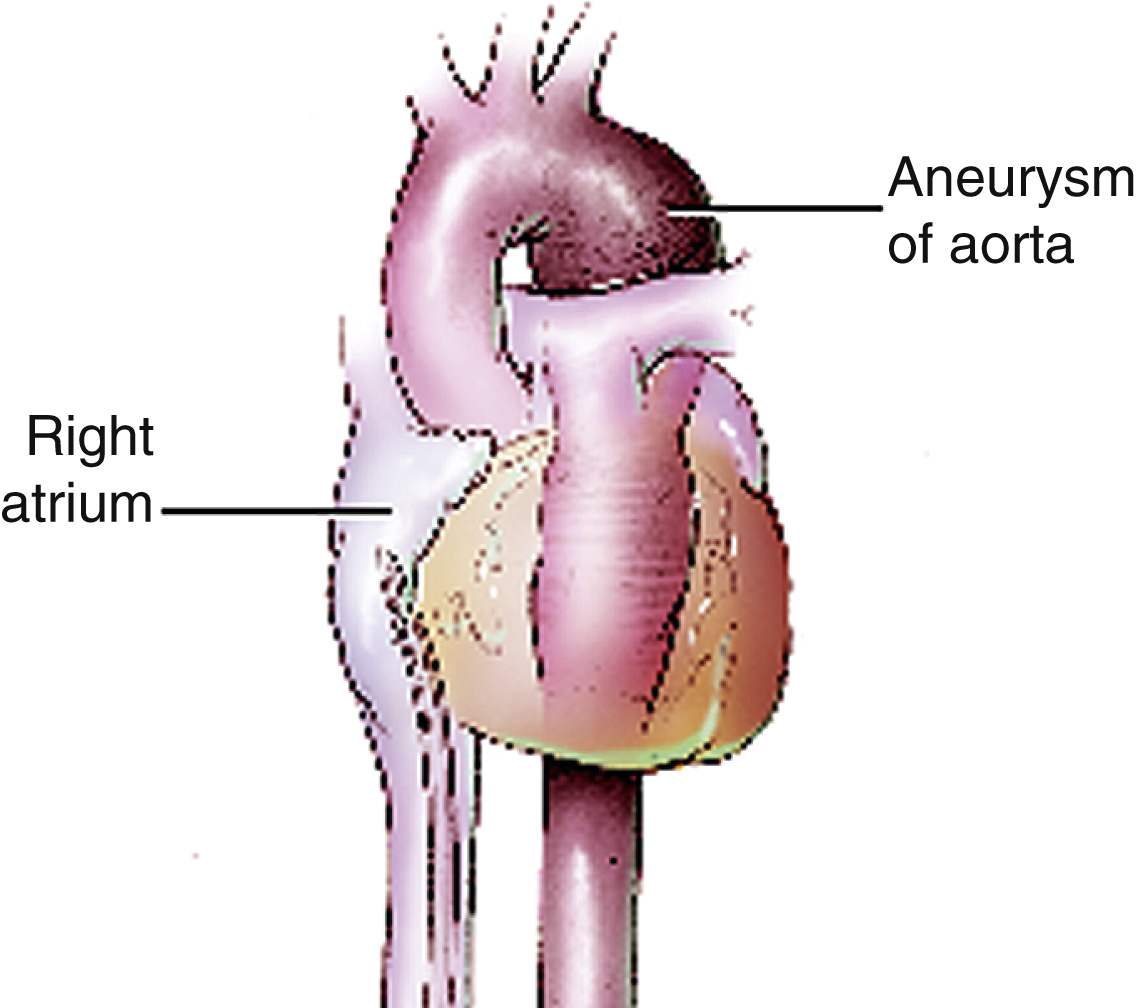aneurysm /an″yo͝oriz′əm/ [Gk, aneurysma, widening] , a localized dilation of the wall of a blood vessel. It may be caused by atherosclerosis and hypertension, or less frequently, by trauma, infection, or a congenital weakness in the vessel wall. Aneurysms are common in the aorta but also occur in peripheral vessels, especially in the popliteal arteries of older people. A sign of a large arterial aneurysm is a pulsating swelling that produces a blowing murmur on auscultation. Small aneurysms may produce no sound at all. An aneurysm may rupture, causing hemorrhage, or thrombi may form in the dilation and give rise to emboli that may obstruct smaller vessels. Aneurysms are usually named by the area in which they occur. Also called vascular tumor. Kinds include abdominal aortic aneurysm, berry aneurysm, racemose aneurysm, compound aneurysm, fusiform aneurysm. See also pseudoaneurysm. −aneurysmal, adj.

